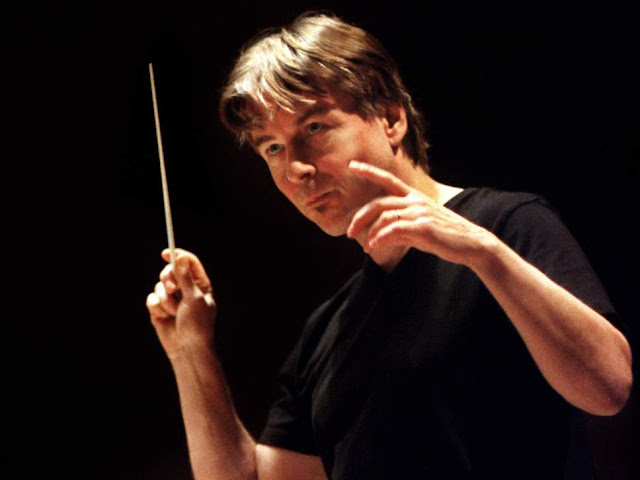The Met revives the most popular chapter of Wagner's Ring.
by
Paul J. Pelkonen
 |
The twins Sieglinde (Eva-Marie Westbroek) and Siegmund (Stuart Skelton)
fall in love under the looming Machine in the Met's production of Die Walküre.
Photo by Ken Howard © 2012 The Metropolitan Opera. |
Part Two of the
Ring brings humans into the story, but the Gods have already messed everything up. Wotan, the ruler of the Gods, seeks a hero to lead his forces against the dark elf Alberich. But he finds himself in a position of having to murder that hero Siegmund. This is too much for his favorite daughter, the Valkyrie Brunnhilde. She rebels against him, and then runs for her life.
What is Die Walküre?
Properly speaking, this is the "First Day" of the four-part "festival play" that is Wagner's
Ring. (The composer regarded
Das Rheingold as a "preliminary evening.) This is the most famous and frequently performed of the four operas that make up the cycle.
What's the plot?
On a dark and stormy night, the Wälsung twins Siegmund and Sieglinde are reunited, seemingly by chance. They fall in love, committing adultery and incest at the same time. (The result of their brief union will be the title character of
Siegfried.) Wotan, who is their father, is forced by his wife Fricka (the goddess of marriage) to order Brunnhilde the Valkyrie fight for Sieglinde's jilted husband Hunding. Brunnhilde rebels, but Hunding kills Siegmund anyway. Brunnhilde saves Sieglinde from Wotan. She is then punished by her father, put to sleep on top of a rock in a ring of magic fire.
What's the music like?
Die Walküre is the opera people think of when they think of Wagner. The first act is all passion as Sieglinde and Siegmund find each other and fall madly in love. The second act has a long stretch of Wotan reiterating all the mistakes he made in
Das Rheingold to Brunnhilde. Its second half is all action, as Siegmund battles Hunding. The "Ride of the Valkyries" (that's "kill the wabbit") opens the third act. The "Magic Fire Music" ends the opera in a storm of orchestral virtuosity.
Tell me something else cool!
Of the four
Ring operas, it is
Die Walküre that hews closest to Wagner's theories of opera and drama. There are few aria-like moments, and the opera is composed mostly of dialogue and duets over a thundering orchestra.
How's the production?
These performances mark the return of Robert Lepage's sometimes stunning, sometimes problematic multi-million dollar stage set, known at the Met as "The Machine." Mounted on two huge towers, the action takes place on a series of gigantic parallel planks that rotate on a central axis. By changing their angles and locking the planks in place, the Machine creates trees, mountains, valleys and even huge flying animals when necessary. Digital projections render the scenery in vivid patterns, a high-tech solution to Romantic 19th century opera.
Who's in it?
These performances star Greer Grimsley as Wotan, and mark the eagerly anticipated arrival of Christine Goerke as his rebellious daughter Brunnhilde. Jamie Barton is Fricka. The twins Siegmund and Sieglinde are reprised by Stuart Skelton and Eva-Marie Westbroek. (They sang these roles in 2012.) Günther Gröissbock is the villainous Hunding. Philippe Jordan conducts his first
Ring performances at the Met.
When does it open?
There are only five performances of
Die Walküre this season. Three are being sold as part of complete
Ring cycles. The two in March are on March 25 and 30.
How do I get tickets?
The best way to see the
Ring is to get a subscription for the four operas. Call the box office at (212) 362-6000.
If you enjoyed this article, it's time to click over to Superconductor's
Patreon page, and help support the cost of independent music journalism in New York City at the low cost of just $5/month.































